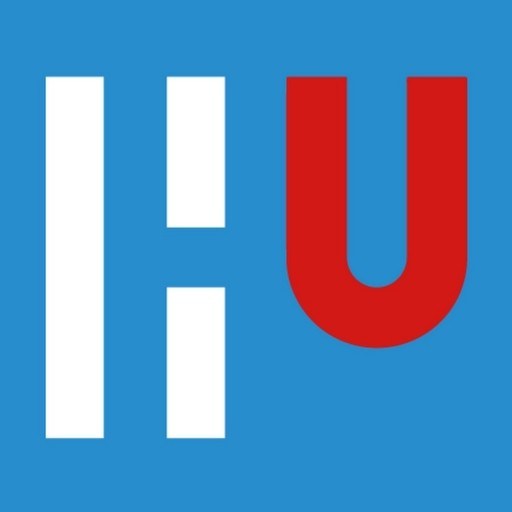Photos of university / #vuamsterdam
Instruction modes
oral presentation, computer exercise, tutorial, lecture, working group, group assignment, group discussion, individual assignment, practicum, self study, project
Accreditation: NVAO
Erasmus Mundus program: This is an Erasmus Mundus program.
The Master's programme in Lifestyle Informatics at Vrije Universiteit Amsterdam is an innovative and interdisciplinary degree designed to explore the intersection of technology, health, and daily living. This programme aims to equip students with the skills and knowledge necessary to develop and analyze digital solutions that promote healthier, more sustainable, and more personalized lifestyles. Throughout the programme, students will delve into core topics such as data analysis, sensor technology, mobile health, user-centered design, and behavioral change. The curriculum emphasizes both theoretical understanding and practical application, enabling students to create impactful digital interventions and tools that enhance quality of life.
Students will have the opportunity to learn about the latest advancements in wearable technology, smartphone applications, and data visualization, alongside ethical considerations related to privacy, data security, and user consent. The programme also emphasizes collaborative work, often involving partnerships with industry and healthcare organizations, providing students with real-world experience. An interdisciplinary approach encourages students to integrate knowledge from fields such as computer science, psychology, human factors, and public health.
The coursework includes modules on digital health innovation, user research methods, system design, and evaluation techniques. Students will also undertake a research project and a thesis, allowing them to investigate specific challenges related to lifestyle and health behaviors in depth. The programme prepares graduates for careers in health tech companies, startups, research institutions, and healthcare organizations, where they can contribute to developing personalized health solutions, designing user-friendly digital interfaces, and advancing sustainable lifestyle practices.
By the end of the programme, students will be capable of designing and implementing digital interventions that promote healthier lifestyles, conducting research to evaluate their effectiveness, and understanding the societal and ethical implications of digital health innovations. The master's degree in Lifestyle Informatics provides a comprehensive foundation for those passionate about leveraging technology to improve everyday living and health outcomes on a global scale.
Other requirements
The Financing of the Lifestyle Informatics Master's programme at Vrije Universiteit Amsterdam is designed to be accessible to a wide range of students, offering various options to fund their studies. Tuition fees are established annually by the Dutch government and depend on the student's nationality. For EU/EEA students, the standard tuition fee is approximately €2,200 per year, whereas non-EU/EEA students typically pay around €15,000 to €18,000 per year. These fees cover the cost of education, access to resources, and support services provided by the university.
Students are encouraged to explore scholarship opportunities, which may include university-specific scholarships, government grants, or external funding sources. The VU Fellowship Programme, for example, offers scholarships to outstanding international students from select countries. Additionally, students from the Netherlands and the EU can often access student loans, grants, or financial aid through Dutch government schemes, such as the Studiefonds or the DUO loan system. International students from outside the EU/EEA might also consider private loans or sponsorships from their home countries.
Part-time work while studying is a common way for students to finance their education. The university and surrounding city provide numerous job opportunities, especially in the service sector, tutoring, or research assistant roles, which many students utilize to support their studies financially. International students are allowed to work up to 16 hours per week during the academic year, which can help offset living expenses.
Living costs in Amsterdam, including accommodation, food, transportation, and study materials, are estimated to range between €10,000 and €15,000 annually. Students are advised to include these costs in their financial planning and to seek advice from the university’s student financial aid office for comprehensive guidance.
In summary, financing a master's degree in Lifestyle Informatics at VU Amsterdam involves a combination of tuition fees, potential scholarships, student loans, part-time employment, and careful financial planning. The university also provides resources to assist students in finding funding options and managing their finances throughout their studies, ensuring that financial barriers do not hinder access to quality education.
Lifestyle Informatics at Vrije Universiteit Amsterdam is an innovative interdisciplinary master's program designed to explore the complex relationship between people, technology, and their lifestyles. This program aims to equip students with the skills and knowledge necessary to develop and implement digital solutions that enhance everyday life, improve well-being, and promote sustainability. The curriculum integrates principles from informatics, behavioral sciences, design, and technology, allowing students to understand how digital innovations can influence personal and societal lifestyles.
The program emphasizes a user-centered approach, encouraging students to analyze users' needs and preferences through research and data analysis. They learn to design, develop, and evaluate digital tools and applications that support healthy behaviors, social participation, and sustainable living. Courses cover various topics, including digital health, behavioral change, data management, user experience design, and ethical implications of technology use.
Students also gain practical experience through project-based coursework, internships, and collaborations with industry partners. This hands-on approach ensures they develop real-world skills in designing and implementing digital solutions tailored to diverse user groups. The program prepares graduates for careers in digital health companies, tech startups, research institutions, and government organizations focusing on improving quality of life through technology.
The faculty involved in the program includes experts in informatics, psychology, design, and social sciences, fostering an interdisciplinary learning environment. The program is suitable for students with backgrounds in computer science, psychology, design, or related fields who are interested in applying their skills to promote healthier, more sustainable lifestyles. Upon completing the program, graduates are well-equipped to lead innovative projects that leverage digital technology to tackle societal challenges related to health, well-being, and sustainable living.
Overall, Lifestyle Informatics at VU Amsterdam offers a forward-thinking curriculum that combines technical expertise with a keen understanding of human behavior, enabling students to become leaders in developing digital solutions that positively impact individual and societal lifestyles.







